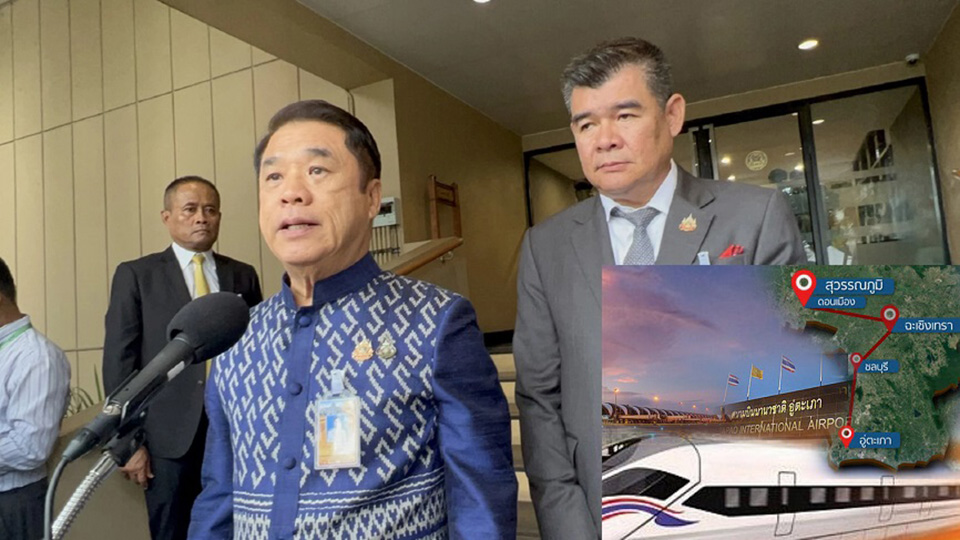
BANGKOK, Thailand – Transport Minister Suriya Jungrungreangkit has reaffirmed that revisions to the high-speed rail project connecting three airports (U-Tapao, Suvarnabhumi, and Don Mueang) are not designed to favor private entities, October 22. He explained that the changes stem from both the government and private sectors breaching the original contract due to COVID-19, which caused project delays. The revised terms aim to ensure project continuation without disadvantaging the state.
Suriya highlighted that the pandemic delayed the government’s handover of land to the private contractor, while the private sector also struggled to proceed, leading to mutual breaches. He stressed the importance of the project, which is part of the national strategic plan and will improve transportation and commerce by linking the three airports. Therefore, the contract revision is necessary to move forward in a way that protects the state’s interests.
Under the original contract, the private sector was responsible for completing the project, with the government making payments ten years after completion. In the revised contract, the private sector must provide a bank guarantee to ensure the project’s completion. If the contractor fails to deliver, the government can use the guarantee to hire a new contractor to complete the work.
Suriya emphasized that the revisions are not designed to benefit any large private companies, as the private sector will bear the interest costs. The revised contract has already undergone legal scrutiny by the Office of the Attorney General. The project falls under the Eastern Economic Corridor (EEC), with Deputy Prime Minister Pichai Chunhavachira overseeing the finance aspect.
He expressed confidence that coalition partners will understand the necessity of the contract adjustments for this critical infrastructure project. (TNA)








